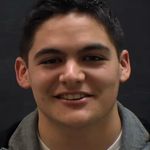 Hey guys! Last time you saw me I gave you guys the rundown about how to conquer auditions at Boston University. This time I’m back with some more theater for you guys. Now I bet you guys are thinking – “yes, Tom’s really into theater, but what does this have to do with the College of Communication?” Through my involvement with BU On Broadway, I managed to find a way to combine my major in advertising with my passion for theater: I became a Producer.
Hey guys! Last time you saw me I gave you guys the rundown about how to conquer auditions at Boston University. This time I’m back with some more theater for you guys. Now I bet you guys are thinking – “yes, Tom’s really into theater, but what does this have to do with the College of Communication?” Through my involvement with BU On Broadway, I managed to find a way to combine my major in advertising with my passion for theater: I became a Producer.
Last semester, I took on being a producer for the first time for our production of The Producers (I know… producer of The Producers, way too much producer in one sentence.) Taking on the role of producer was a much bigger commitment than I thought it was, but it provided me with a huge resume and experience booster for the future. Plus, it was actually something I enjoyed doing and was applicable to my future career.
So what does a Producer do exactly?
1. Advertising, Advertising, and more Advertising. The Producer’s main job is to sell the show. This involves everything including poster design, T-Shirt design, and handouts for us to give out in the George Sherman Union. We also ran a social media campaign for the production using the hashtag: #PrOBucers (note the “OB” (On Broadway) in the middle).
2. Managing the Budget. Ah, the budget. A COM kid’s least favorite word. Unfortunately, being a Producer isn’t all fun and games advertising. You also need to take the cost of the whole production into account. The producers are responsible for making sure that the tech crew stays within their budget and are reimbursed through the Student Activities Office for all the purchases they made. While very tedious, managing a budget is an extremely valuable skill I picked up that’s relevant to any future in Account Management.
3. Work with the Student Activities Office. As On Broadway is a student group on campus, someone needs to be responsible for checking in with the Student Activities Office. This is where the producers come in. The producers need to fill out numerous forms in addition to making sure everything is set for opening night.
Here’s some advice:
While I’m not recommending everyone interested in communication run out and be a producer, I would advise new COM students to do what their passionate about. I got involved with On Broadway as an actor, and managed to blend my love for theater with my future aspirations in advertising. My advice: be a good student and stick to what you love. Your career aspirations will eventually work out.
That’s all for now! I hope to keep you updated with my newest producing endeavor: this spring’s production of Spring Awakening!
 Hey guys! The second week of classes only means one thing for students involved in theater on campus: Auditions.
Hey guys! The second week of classes only means one thing for students involved in theater on campus: Auditions.